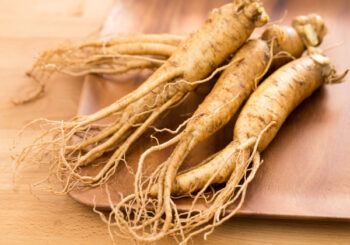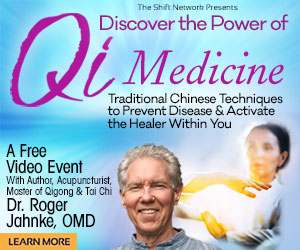By Nick Polizzi
Guest Writer for Wake Up World
If I asked you what the single most important organ is when it comes to sexual well-being, what would you say?
Considering that simply smelling vanilla raises testosterone levels in males and estrogen levels in females, you might be thinking, the nose! After all, modern research has shown that the scent of vanilla is correlated with a greater increase in sexual arousal for men than any other scent!
Well… it’s not the nose.
The most important organ when it comes to sexual health is connected to your nose and all other organs in your body. Drum roll please…I’m talking about your brain.
Your brain controls everything that happens in your body and sends the necessary signals and messages to each part and system — so if your brain’s not on board, you’re going to have a hard time getting in the mood, feeling aroused or even functioning.
There are so many factors involved in setting the mood – including sleep and stress levels, sensory experiences, mood and emotions, and the mental stories we tell ourselves about our bodies and sex. And that all comes from the brain.
It’s no surprise then that some of the same herbs that are optimal for brain health and function, can also make for wonderful aphrodisiacs.
Three such herbal allies are: Ginkgo biloba, Ginseng, and Maca Root.
Ginkgo biloba
Practically a “living fossil,” the ginkgo tree has a long history that reaches back over 200 million years – that means ginkgo was even around during the age of dinosaurs! Many of these trees were lost when the earth underwent extreme changes in climate. However, people were attracted to this unique tree and began cultivating it about 1,000 years ago, saving it from near extinction. The last surviving species, known today as Ginkgo biloba, is native to China where it has a long standing popularity in Traditional Chinese Medicine.
Ginkgo biloba can increase the level of nitric oxide in the blood, aiding blood flow by promoting the dilation of blood vessels. Increased blood flow means that your body is sending more blood to both the brain and the genitals, which can improve both sexual desire and function. Ginkgo also has a relaxant effect on smooth muscle tissue, and was found in one study to have a positive effect on all four phases of the sexual response cycle including: desire, excitement (erection and lubrication), orgasm, and resolution (afterglow).
Ginkgo doesn’t just support your sex organs – it was actually by observing a geriatric patient on ginkgo for memory enhancement who showed improved erections that researchers decided to look at this tree for its aphrodisiac potential. Because it improves blood flow, it helps to provide the brain with more oxygen and nutrients, thus supporting better cognitive performance. Ginkgo also promotes memory and improves mood – which is essential to intimacy.
***Because the plant’s extract can also act as a blood thinner, it’s especially important to consult your doctor before using this herbal supplement.
Panax Ginseng
For many years, Panax ginseng has enjoyed a reputation as one of the finest aphrodisiacs in the world. The word Panax, in fact, means “all-healing” in Greek and is thus a reference to the roots’ supposed revitalizing properties for the whole human body.
Like ginkgo, ginseng is said to enhance sexual desire and performance by boosting blood flow, enhancing energy and lowering stress levels. Although there are many types of ginseng, Panax ginseng, also known as Asian or Korean ginseng, shows the most promise when it comes to boosting your libido.
A traditional Chinese herbal therapy, ginseng has been shown to influence the nervous system, facilitating hormone secretion, thus benefiting both sexual drive and arousal. Ginseng can be taken as a supplement, but you can also cook with the raw root and add it to things like stir-fry, stews and soups, or brew it as a tea.
While this amazing plant can be an ally when it comes to your reproductive and cognitive health, it’s worth noting that it should be used in moderation and after consulting with your holistic practitioner. Because it can have some hormone-mimicking effects that could be harmful when used long-term, it’s not recommended to take it for more than six months. In the case of adverse effects, discontinue use immediately.
***Furthermore, due to its endangered status in many regions, please be careful to source this herb from sustainable suppliers who harvest in an ethical way.
Maca Root
Sometimes called Peruvian ginseng, native to Peru and known in the West as a superfood, maca is a plant that boosts sexual desire and performance by regulating hormones and improving mood and energy levels. This is because maca contains amino acids like arginine, which has been clinically shown to improve fertility and sexual function. Some studies suggest it may also improve semen quality, relieve symptoms of menopause, and reduce enlarged prostates!
Like Gingko, maca has an extremely long history. Primitive varieties were found in archaeological sites dating back to 1600 B.C. The maca root was later domesticated during the pre-Inca period, sometime around 380 B.C. The indigenous people used it for centuries to enhance fertility in humans and animals, and it was also commonly traded for gold and exported to feed the kings of Spain!
But in the 19070s, due to political uprisings and a change in the popular diet, the maca plant was pushed nearly to extinction. Thanks to the dedicated native peoples who relied on careful seed harvesting and resourcefulness to protect this wondrous plant from extinction, we can still enjoy maca today.
Families in the vicinity of Chinchaycocha (and the generations before them) are owed an insurmountable debt for their dedication to the preservation of this plant. Today, more than 10,000 acres of maca are planted annually, as maca is once again eaten up to three times a day by many Peruvians, from pro athletes to the elderly.
More than just decreasing stress and improving athletic performance, maca is also known as a nootropic substance, or a supplement that can enhance brain performance, including cognitive function, motor coordination, and endurance capacity. Maca has been shown to slow down age-related cognitive decline when consumed daily.
As you can see, there are many benefits to adding this wondrous plant into your diet! It’s worth noting that maca root is best consumed cold as some of the nutritional value can be lost in heating.
*As with any herbal remedy, it is recommended that you consult with your holistic health practitioner before consuming any of these herbs.*
This is just the tip of the iceberg. The deeper you dive into the healing of your body, the more you realize that each system impacts another – there is no way to separate them. So as you step onto the path of healing one ailment, you are really upgrading your whole being.
While our herbal allies can be a huge support, it’s important to remember that physical challenges, injuries or illnesses are just the body’s way of communicating an imbalance within us. It’s important go inward and listen.
What stories or repetitive thought patterns are affecting your health? Are you harboring stuck emotions? As you seek the healing powers of plants, you must also open your body up to receive their help. Are you ready to listen? Are you ready to receive?
Stay curious,
Nick Polizzi
 Nick Polizzi has spent his career directing and editing feature length documentaries about natural alternatives to conventional medicine. Nick’s current role as director of “The Sacred Science” documentary and author of “The Sacred Science: An Ancient Healing Path For The Modern World” stems from a calling to honor, preserve, and protect the ancient knowledge and rituals of the indigenous peoples of the world.
Nick Polizzi has spent his career directing and editing feature length documentaries about natural alternatives to conventional medicine. Nick’s current role as director of “The Sacred Science” documentary and author of “The Sacred Science: An Ancient Healing Path For The Modern World” stems from a calling to honor, preserve, and protect the ancient knowledge and rituals of the indigenous peoples of the world.
For more, visit www.thesacredscience.com (where this article first appeared.)

If you've ever found value in our articles, we'd greatly appreciate your support by purchasing Mindful Meditation Techniques for Kids - A Practical Guide for Adults to Empower Kids with the Gift of Inner Peace and Resilience for Life.
In the spirit of mindfulness, we encourage you to choose the paperback version. Delve into its pages away from screen glare and notifications, allowing yourself to fully immerse in the transformative practices within. The physical book enriches the learning process and serves as a tangible commitment to mindfulness, easily shared among family and friends.
Over the past few years, Wake Up World has faced significant online censorship, impacting our financial ability to stay online. Instead of soliciting donations, we're exploring win-win solutions with our readers to remain financially viable. Moving into book publishing, we hope to secure ongoing funds to continue our mission. With over 8,500 articles published in the past 13 years, we are committed to keeping our content free and accessible to everyone, without resorting to a paywall.








